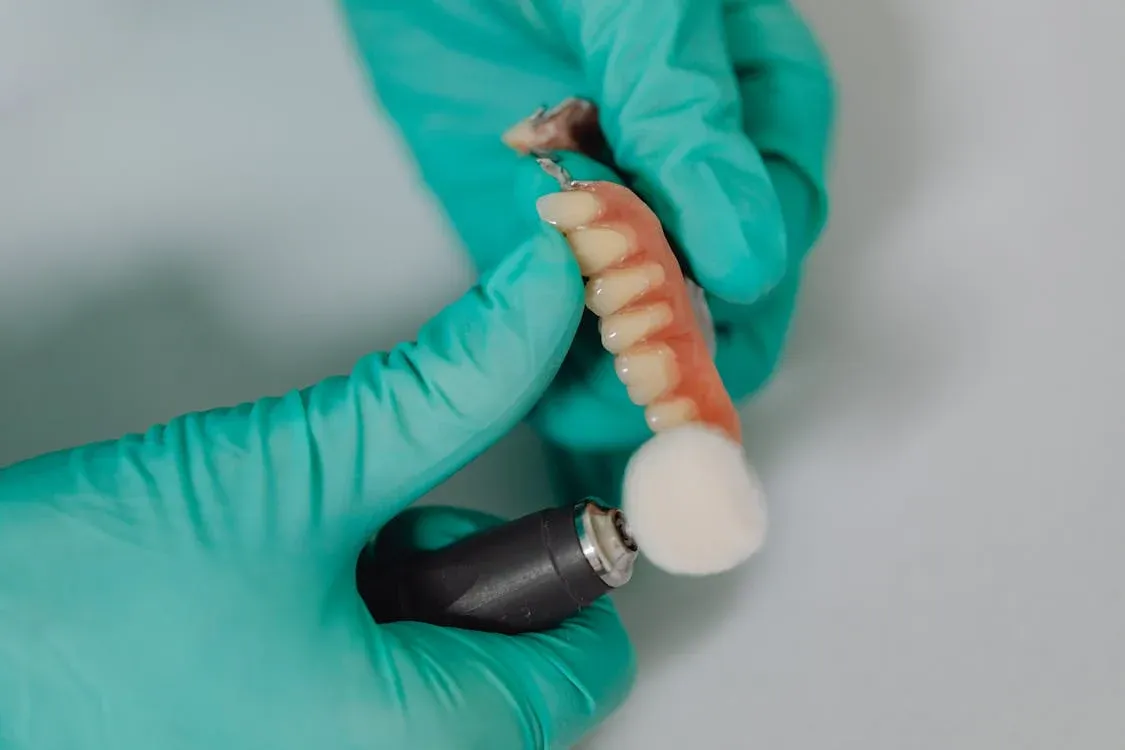A confident smile is often considered the key to self-assurance and vitality. However, tooth loss can significantly impact your smile's aesthetics and functionality, affecting your confidence and quality of life. Fortunately, dental implants in Los Angeles CA offer a revolutionary solution to restore missing teeth and rejuvenate your smile.
Dental implants are advanced restorative dental solutions designed to replace missing teeth by surgically placing titanium posts into the jawbone, serving as artificial tooth roots. These posts provide a stable foundation for attaching custom-made crowns, bridges, or dentures, restoring the smile's functionality and aesthetics. Dental implants in Los Angeles, CA, offer numerous benefits, including improved chewing ability, speech clarity, jawbone preservation, and long-term durability, making them a highly effective and natural-looking solution for tooth loss.

Types of Dental Implants in Los Angeles CA
Endosteal Implants
- Endosteal implants are the most common type of dental implant. They are typically made from titanium and shaped like small screws. These implants are surgically placed directly into the jawbone. Endosteal implants are suitable for patients with sufficient bone density and volume in the jaw. They can replace a single tooth, multiple teeth, or support dentures.
-
Benefits:
- Endosteal implants have a high success rate due to their direct integration with the jawbone, which provides a stable and secure foundation for replacement teeth.
- They can support various dental restorations, including crowns, bridges, and dentures.
- The prosthetic teeth attached to endosteal implants closely mimic the appearance and function of natural teeth.
- Endosteal implants can last a lifetime with proper care, offering a long-term solution for tooth loss.
Subperiosteal Implants
Subperiosteal implants are placed under the gum but above the jawbone. They consist of a metal framework resting on the jawbone, with posts that protrude through the gums to support the prosthetic teeth. Subperiosteal implants are an alternative for patients who do not have enough healthy jawbone to support endosteal implants and do not want to undergo bone grafting procedures. Contact us today to learn more!
Benefits:
- These implants are ideal for patients with insufficient jawbones who are not candidates for bone grafting.
- The placement of subperiosteal implants is less invasive than that of endosteal implants, as it does not require drilling into the jawbone.
- Since the procedure is less invasive, the recovery time is generally shorter than for endosteal implants.
Mini Dental Implants
- Mini dental implants are smaller in diameter than traditional implants and are typically used to stabilize lower dentures. They consist of a one-piece screw with a ball-shaped end that is attached to the denture. Mini dental implants are used for patients with minimal bone density who require stabilization of dentures or temporary support for provisional prostheses.
-
Benefits:
- The placement of mini implants is less invasive than traditional implants. It often requires only local anesthesia, which results in quicker recovery.
- Mini implants are generally more affordable than traditional implants, making them a cost-effective solution for denture stabilization.
- These implants can often be loaded immediately, allowing patients to enjoy improved denture stability immediately.
All-On-4® Implants
- The All-on-4® treatment concept involves placing four implants in the jaw to support an entire arch of replacement teeth. The posterior implants are placed at an angle to maximize contact with the existing bone. All-on-4® implants are ideal for patients who have lost most or all of their teeth and seek a full-arch restoration without requiring extensive bone grafting.
-
Benefits:
- Provides a complete set of fixed teeth with just four implants, restoring full dental function and aesthetics.
- The posterior implants' angled placement maximizes the use of available bone, reducing the need for bone grafting.
- In many cases, a temporary set of teeth can be placed on the same day as the implants, allowing for immediate improvement in appearance and function.
- The All-on-4® technique can be more affordable than placing individual implants for each missing tooth. Call us to learn more.
The Dental Implant Procedure in Los Angeles, CA
Initial Consultation and Planning
The first step in the dental implant process is an initial consultation with our dentist in Los Angeles, CA. During this visit, a comprehensive examination is conducted, which includes X-rays, 3D imaging, and a review of your medical and dental history. This thorough evaluation helps determine the suitability of dental implants for your case and allows our dental professional to plan the procedure in detail.
The dentist assesses the condition of your jawbone and gums, discusses your treatment goals, and creates a personalized treatment plan. This plan outlines the number of implants needed, the type of restoration (crown, bridge, or denture), and any preparatory procedures required, such as bone grafting or tooth extractions.
Implant Placement Surgery
Once the treatment plan is finalized, the surgical placement of the dental implants is the next step. This procedure is typically performed under local anesthesia, although sedation options are available for those who experience anxiety or require extensive work.
During the surgery, the dentist makes a small incision in the gum to expose the jawbone. A hole is drilled into the bone using specialized instruments, and the titanium implant fixture is carefully inserted. The gum tissue is then stitched back in place, and a healing period of several months is necessary to allow the implant to integrate with the bone in a process known as osseointegration. This integration is crucial for the stability and success of the implant.
Abutment and Prosthesis Placement
After the osseointegration period, a minor surgical procedure is performed to attach an abutment to the implant. The abutment serves as a connector between the implant fixture and the prosthetic tooth. Once the gums have healed around the abutment, impressions of your mouth are taken to create a custom-made prosthetic tooth or teeth. These impressions ensure that the final restoration fits seamlessly with your natural teeth in terms of size, shape, and color.
Once the prosthesis is ready, it is securely attached to the abutment, completing the dental implant process. The result is a fully functional and aesthetically pleasing replacement tooth that feels and functions like a natural tooth, restoring your smile and oral health. Regular follow-up appointments are scheduled to monitor the implant and ensure its long-term success.
Frequently Asked Questions
What are Los Angeles dental implants, and how do they work?
Los Angeles dental implants are permanent solutions for replacing missing teeth. The procedure involves placing a titanium post into the jawbone, which acts as a root for a replacement tooth. After healing, a crown is placed on top of the post, restoring both the appearance and function of your natural tooth. Tooth implant Los Angeles offers a durable and long-lasting solution to missing teeth.
What is the dental implant procedure, and how long does it take?
The dental implant procedure typically involves multiple steps. First, your implant dentist in Los Angeles will place the titanium post into your jawbone. After the post integrates with the bone (a process called osseointegration), a custom crown or bridge is attached. The entire process can take several months, but the result is a stable, permanent tooth replacement. Your dentist will provide a timeline based on your unique case.
How much do dental implants cost in Los Angeles?
The dental implant cost in Los Angeles can vary depending on several factors, including the number of implants needed, the materials used, and any additional procedures such as bone grafting. On average, a single tooth implant Los Angeles can cost between $3,000 and $5,000 or more. During your consultation, we'll provide a detailed estimate of the costs involved and discuss available payment options.
What are the benefits of dental implants compared to other tooth replacement options?
The benefits of dental implants include their ability to restore both the function and appearance of natural teeth, improve chewing and speech, and prevent bone loss in the jaw. Unlike dentures or bridges, dental implants are permanent and do not require adjustments over time. They also help maintain your facial structure by stimulating the bone, preventing the sinking or sagging that can occur with tooth loss.
Are there any dental implant alternatives?
Yes, there are dental implant alternatives like dentures and dental bridges. Dentures are removable appliances that replace missing teeth, while bridges use neighboring teeth to support a prosthetic tooth. While these alternatives can be effective, Los Angeles dental implants are often considered a more stable and permanent solution. During your consultation, our implant dentist in Los Angeles can help you choose the best option for your needs.
Comprehensive Dental Care from Your Trusted Dentist in Los Angeles, CA
At Kawata Dental Inc., our experienced team, including Dr. Bennett Kawata, D.D.S., and Dr. Lani Tittle, D.D.S., takes pride in providing high-quality, patient-focused dental care. As a leading dentist in Los Angeles, we are committed to helping patients achieve optimal oral health and beautiful smiles through advanced techniques and personalized treatment plans.
Whether you need routine preventive care, cosmetic enhancements, restorative solutions, or full-mouth rehabilitation, our Los Angeles, CA dentist offers a full spectrum of dental services. From professional cleanings and fillings to Invisalign®, same-day crowns, and dental implants, we ensure every patient receives tailored, compassionate care in a comfortable environment.
As a trusted dentist Los Angeles, CA, we use cutting-edge technology and modern techniques to deliver outstanding results that enhance both aesthetics and function. Our goal is to create lasting relationships built on trust, excellence, and comfort — ensuring every visit supports your long-term dental wellness.
If you’re searching for a Los Angeles, CA dentist who values precision, artistry, and patient satisfaction, look no further than Kawata Dental Inc.. Experience exceptional care and a renewed sense of confidence in your smile.
Dental implants offer a transformative solution for individuals with tooth loss, providing unmatched functionality, aesthetics, and durability benefits. Visit Kawata Dental Inc. at 12211 W Pico Blvd, Los Angeles, CA 90064, or call (310) 826-6123 to discover how dental implants can restore your oral health and enhance your quality of life.
Visit Our Office
Los Angeles, CA
12211 W Pico Blvd, Los Angeles, CA 90064
Email: [email protected]
Request An AppointmentOffice Hours
- MON8:00 am - 5:00 pm
- TUE8:00 am - 5:00 pm
- WED8:00 am - 5:00 pm
- THU8:00 am - 5:00 pm
- FRI8:00 am - 5:00 pm
- SATClosed
- SUNClosed



